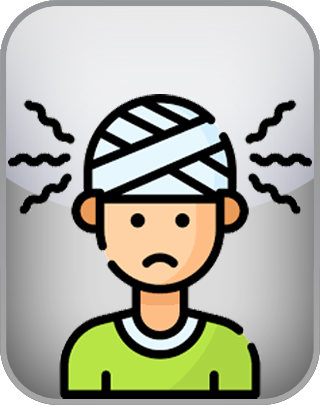Adverse Childhood Experiences (ACE) Test
The Adverse Childhood Experiences (ACE) Test is a screening tool designed to measure exposure to potentially traumatic events during childhood. It is derived from the Adverse Childhood Experiences Study Questionnaire, developed by Felitti et al. (1998), which identified a strong link between childhood adversity and long-term physical, emotional, and mental health outcomes.
To take the test, enter your input below.
Question 1 of 17
While you were growing up, during your first 18 years of life:
Was your mother or stepmother:
Ever repeatedly hit over at least a few minutes or threatened with a gun or knife?
NEXT
The IDRlabs Adverse Childhood Experiences (ACE) Test was developed by IDRlabs, based on the Adverse Childhood Experiences Study Questionnaire.
Adverse childhood experiences (ACEs) refer to traumatic or stressful events that occur during childhood and can have lasting effects on a person’s well-being. These experiences include physical, emotional, or sexual abuse; neglect; household dysfunction (such as parental divorce, substance abuse, or mental illness); and exposure to violence. Studies show that ACEs significantly increase the risk of physical, emotional, and psychological difficulties later in life.
The impact of ACEs on brain development is profound. Chronic stress caused by trauma can disrupt neural connections, leading to difficulties in emotional regulation, impulse control, and cognitive function. Children exposed to high levels of adversity are more likely to experience anxiety, depression, and learning difficulties. The body's stress response system, particularly the hypothalamic-pituitary-adrenal (HPA) axis, becomes overactive, making individuals more prone to stress-related disorders.
Long-term consequences of ACEs extend beyond mental health. Research links childhood trauma to chronic illnesses such as heart disease, diabetes, and autoimmune disorders. Behavioral outcomes are also affected—individuals with multiple ACEs are at higher risk for substance abuse, risky behaviors, and difficulties in forming healthy relationships. The risk of intergenerational trauma is also significant, as adverse experiences can influence parenting styles and perpetuate cycles of dysfunction.
Preventing and mitigating the effects of ACEs requires early intervention and support systems. Trauma-informed care, which recognizes the impact of trauma on behavior and development, is essential in schools, healthcare, and social services. Supportive relationships with caregivers, teachers, and mentors can help children develop resilience. Therapy, social-emotional learning, and access to mental health resources are also crucial in reducing the negative impact of childhood adversity.
While ACEs have serious consequences, resilience plays a critical role in overcoming adversity. Protective factors such as strong social support, emotional regulation skills, and positive childhood experiences can buffer the effects of trauma. Communities and policymakers must prioritize efforts to reduce childhood adversity by promoting safe, stable, and nurturing environments. Early detection and intervention can break the cycle of trauma and improve long-term outcomes for affected individuals.
As the publishers of this free test, which allows you to screen yourself for adverse childhood experiences, we have strived to make the test as reliable and valid as possible by subjecting this test to statistical controls and validation. However, free online quizzes such as the present test do not provide professional assessments or recommendations of any kind; the test is provided entirely “as-is.” For more information about any of our online tests and quizzes, please consult our Terms of Service.

 English
English  Español
Español  Português
Português  Deutsch
Deutsch  Français
Français  Italiano
Italiano  Nederlands
Nederlands  Svenska
Svenska  Dansk
Dansk  Polski
Polski  Română
Română  Українська
Українська  Русский
Русский  Türkçe
Türkçe  العربية
العربية  日本語
日本語  한국어
한국어  ไทย
ไทย  汉语
汉语  हिन्दी
हिन्दी  اُردُو
اُردُو  Bahasa
Bahasa 